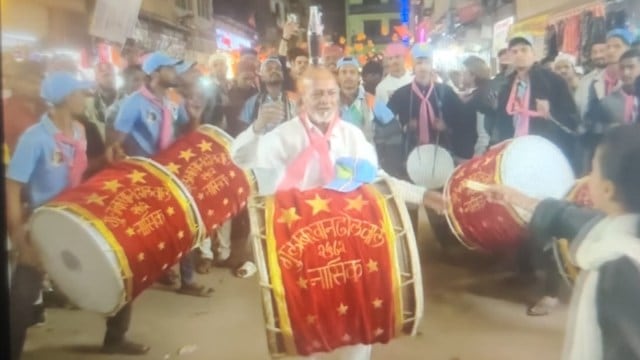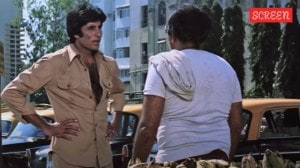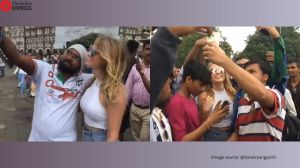Nashik dhol: The enduring legacy of Muslim dhol players in Ganesh festivities
A majority of the earlier drummers from Nashik were Muslims, mostly from the Ansari community.
 Gulab Khan with his troupe (Express Photo)
Gulab Khan with his troupe (Express Photo)The deep resonant beats of the dhol and the sharp rhythmic sounds of the tasha are quintessential to Ganesh Chaturthi celebrations in Maharashtra. Ganesh Utsav, commonly known as Ganesh Chaturthi, is a vibrant and significant festival celebrated predominantly in Maharashtra and by the Hindu diaspora globally.
Among the instruments that invigorate this festival, the Nashik dhol stands out for its role in creating an energetic and rhythmic atmosphere. Interestingly, a majority of the proponents of this craft are Muslim artists who fan out across the country during the 10-day Ganesh celebrations and dish out rhythmic beats before the deity.
The tradition of playing the Nashik dhol in its own distinct style began with the Ansari community from Nashik district, who were among the earliest proponents of this art form. Today, with numerous dhol-tasha pathaks proliferating across Maharashtra, the original Nashik dhol bands and their Muslim drummers are highly sought after and command a premium. They remain a integral part of Ganpati celebrations throughout India, continuing to infuse the festivities with their unique and dynamic rhythms.
Interestingly, amid the growing number of dhol-tasha pathaks, the National Green Tribunal had issued an order limiting each troupe to no more than 30 members for dhol-tasha-zanj during Visarjan processions in Pune. However, on Thursday, Chief Justice of India D.Y. Chandrachud issued a stay on this order for the interim. In his oral remarks, the Chief Justice stated, “Let them continue with their dhol-tasha-zanj….”
“I have been playing the dhol at Ganesh festivities for the past 70 years,” 80-year-old Gulab Khan shared with The Indian Express over the phone from Dwarka, Gujarat. As he hurriedly packed his belongings to head back to Maharashtra for another performance at a Ganesh pandal, he reflected, “There is no festival in India where we haven’t been invited to perform. However, Ganeshotsav holds a special place for us, and we often get booked months in advance.”
 Gulab Khan (Express Photo)
Gulab Khan (Express Photo)
The dhol, a double-sided barrel drum, and the tasha, a kettledrum, have long been used in the state to play martial music during wars. The rhythmic beats of dhol-tasha have been an integral part of Maharashtra’s cultural fabric.
The Nashik dhol, however, is regarded as a new style of drum playing that began in the 1950s with men like Badshah Ansari and Gulab Khan, who introduced elements of showmanship and acrobatics into the traditional freestyle form. The late Badshah Ansari’s group members’ rock-star hairstyles, rhythmic patterns, and acrobatics while playing the dhol brought them instant fame, which spread from Nashik to states such as Gujarat and Rajasthan. As business boomed, more people were attracted to the art, and new band parties emerged.
A majority of the earlier drummers from Nashik were Muslims, mostly from the Ansari community. While these drummers initially played at Moharram processions and at dargahs, their breakthrough outside Nashik came when they were noticed by Marwadi and Sindhi businessmen.
“Our first breakthrough came when we were invited by a Marwadi businessman to play in Rajasthan sometime in the ’70s. Our performance enthralled the audience so much that within a year we had to open an office in Rajasthan to manage the gig offers we were receiving,” Khalil Ansari, son of Badshah Ansari, said.
These groups, each comprising a team of 10-12 men, soon started getting invited to almost all religious festivals across India.
“There is no major dargah or Ganesh pandal in Maharashtra where we have not played. There is a Ganpat mandal in Chembur where my team and I have been playing for the last four decades. The only time we missed out was during Covid,” Gulab said.
While the dhol business has boomed with Gulab Khan now handling a team of over 100 drummers, the proliferation of dhol-tasha pathaks and the troubled social fabric of Indian society have affected the business of these drummers.
Over the last few years, there has been a proliferation of dhol-tasha pathaks, which are musical groups comprising young volunteers who practice during weekends and offer their services during Ganesh festivals in their respective localities.
 Dhol business has boomed with Gulab Khan now handling a team of over 100 drummers (Express Photo)
Dhol business has boomed with Gulab Khan now handling a team of over 100 drummers (Express Photo)
Proponents of the Nashik dhol remain unaffected by the increase in these bands. “The demand for dhol during celebrations is increasing, and we are fine with the emergence of dhol-tasha pathaks. What we bring to the table is a unique approach to drum playing that can’t be replicated. We are the original proponents of this art, and we have our dedicated clientele,” Kadir Khan, another dhol player, said.
What is, however, affecting the Nashik dhol players is the broader trend of increasing communal tensions and polarizing sentiments within the country. Muslim artists, like those involved in traditional cultural practices such as playing the dhol or tasha during festivals, have sometimes found themselves in the crosshairs of right-wing groups that view their participation in certain Hindu festivals with suspicion or hostility.
“There definitely has been some change. I guess I have lost 20 per cent of my clientele because of communal hostility. However, I am in Dwarka right now where I performed during a Ganpati immersion. A lot of people would assume that, being Gujarat and especially Dwarka, right-wing people would call the shots. However, I have been invited, and I believe that people like us can become a bridge that can lessen the increasing chasm between the two communities,” Gulab said.












